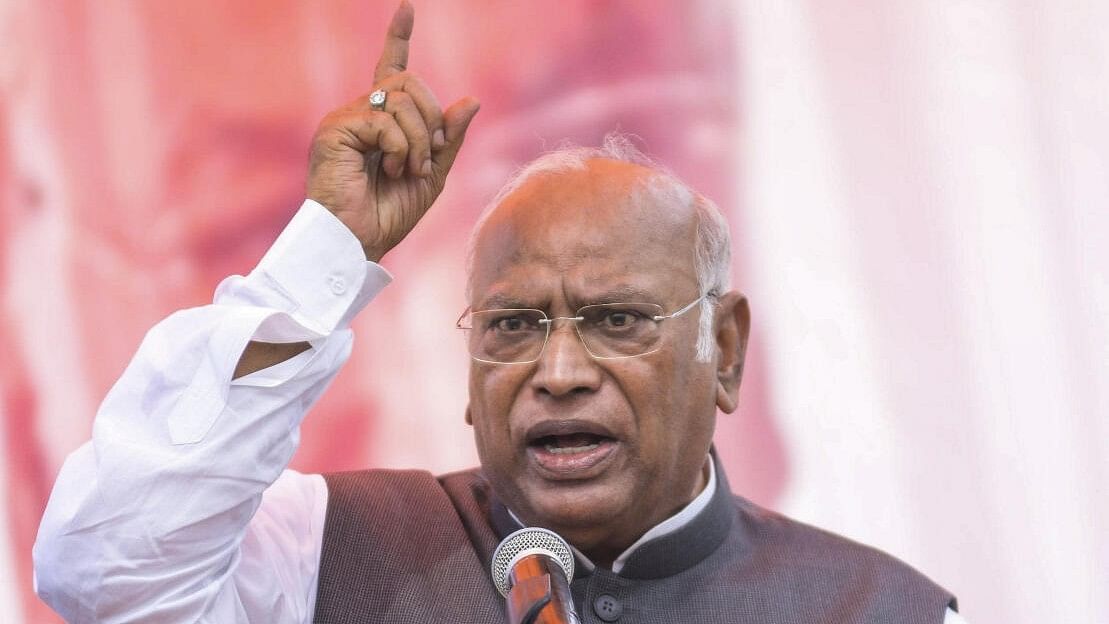
Congress President Mallikarjun Kharge.
Credit: PTI Photo
Bengaluru: All India Congress President Mallikarjun Kharge on Monday expressed confidence about his party coming to power in Haryana, and the party along with its alliance partner National Conference forming the government in Jammu and Kashmir.
The results of both the assembly elections will be announced on October 8.
"Earlier too we had said that in Haryana and Jammu Kashmir, the Congress government will be formed. In Jammu and Kashmir, Congress and NC (National Conference) alliance will form the government, and in Haryana Congress government will be formed," Kharge told reporters here.
Several exit polls have predicted a clear majority for the Congress in Haryana and gave an edge to its alliance with the National Conference in Jammu and Kashmir, with the regional partner emerging as the single largest party.
Haryana had gone to single phase polls on October 5, while Jammu and Kashmir voted in three phases on September 18, 25 and October 1.
Elections were held in Jammu and Kashmir after a gap of 10 years and the bifurcation of the state into two union territories -- Jammu and Kashmir, and Ladakh -- in 2019.
Responding to a question on the Congress and its leader Rahul Gandhi demanding caste census at the national level, Kharge said, "We had said it during Parliament election too, after taking views from all states, further action has to be taken."
Asked whether the much-awaited Socio Economic and Education Survey report, also known as the "caste census" will be implemented in Karnataka, he replied, "Ask the state leaders about it."
Karnataka Home Minister G Parameshwara had on Sunday said the government has decided to place the caste census report before the Cabinet, where it will be discussed, and further action will be decided.
Karnataka State Commission for Backward Classes under its then Chairman K Jayaprakash Hegde on February 29, had submitted the report to Chief Minister Siddaramaiah.
The report was submitted amid objections by certain sections of society and also within the ruling Congress.
Karnataka's two dominant communities -- Vokkaliags and Lingayats -- have expressed reservations about the survey, calling it "unscientific", and have demanded that it be rejected, and a fresh survey be conducted.